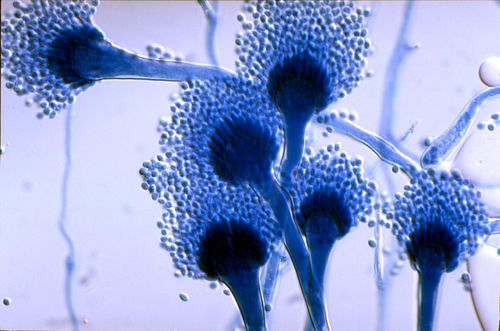Letter to representatives on Triazole resistance Aspergillus

Previous research has shown that there are locations in the environment (‘hotspots’) where the conditions are such that aspergillus (containing some 200 fungal species) can develop resistance to Triazoles (biologically active substances against fungi). This resistance can survive and spread in the form of spores. As a result of this investigation, the RIVM has come up with the following recommendations:
- To further investigate whether, and if so how, people become infected by spores from these “hotspots”
- To consider the treatment of organic waste and if possible adjust it such that the growth conditions for Aspergillus are less favorable
- To apply different forms of fungal control in production chains (where the hotspots are part) prior to the application of azoles
- When using fungicides to strive for the use of substances that are effective against the target organism and that exert little or no selective pressure on Aspergillus.
The cabinet takes the problem of triazole resistance very seriously with regards to the very ill patients with an Aspergillus infection. That is why the government will include the RIVM recommendations in its considerations regarding the follow-up measures.
In May 2016, follow-up research was commissioned by the Ministry of Economic Affairs. In this research, which is coordinated by the RIVM, the composting process is being investigated in an experimental laboratory setup. Also the presence and development of the resistant fungus during the year is being investigated. The research will run until mid-2018 and is expected to provide additional information on the factors that influence resistance formation in Aspergillus.
On November 21, the Expert Group advised:
- To set up a nationwide surveillance that answers the questions regarding the Azole-resistant Aspergillus fumigatus. This surveillance is on specific patient groups. The surveillance should give a reliable insight into the extent of the problem, as well as in the course of and trends in the invasive azoles-resistant Aspergillus fumigatus in the patient. The surveillance must also be able to monitor the effect of committed interventions.
- The Center for Infectious Disease Control of the RIVM to take the initiative to put together an ‘expert group on surveillance’ with broad input from the field (from multiple clinical centers and a veterinary expert). Starting the activities before the coming influenza season is desirable.
- In the short term to achieve a good and reliable diagnostic molecular test. The Radboudumc (reference laboratory) may be asked to take the initiative. The specialisms and laboratories involved can then be informed by existing structures ((Lab)Inf@ct) about the diagnostics and (germ) surveillance of Aspergillus fumigatus.
These activities can partly be funded from the existing financial means. Additional funding may be required for improved diagnostics and surveillance.



